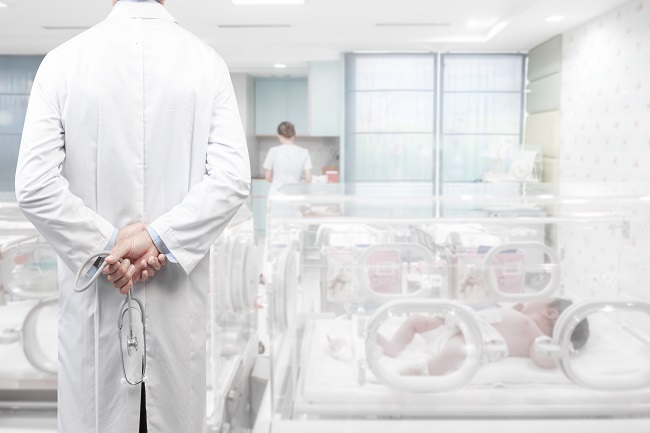Miscarriage is one of the risks that can occur in every pregnancy. In fact, some pregnant women can experience repeated miscarriages. Know what causes recurrent miscarriage so you can take steps to prevent it.
Miscarriage can be called recurrent miscarriage if it has occurred 2 or more times in a row. This condition can be caused by a variety of things, from lifestyle to certain health problems.

If you've had a miscarriage, don't be discouraged. You can take various preventive steps to prevent miscarriage from happening again and to have a smooth and healthy pregnancy.
Various Causes of Repeated Miscarriage
Before trying to get pregnant again, it's good if you know in advance the common causes that make a woman have repeated miscarriages, including:
1. Blood disorders
Antiphospholipid syndrome or APS is a condition that can make the blood of pregnant women tend to clot. Some research shows that about 15–20% of women who experience recurrent miscarriage have antiphospholipid syndrome.
In addition to APS, thrombophilia also makes it easier for the blood to clot. This disease is similar to APS, but has a lower risk of causing recurrent miscarriage. It is estimated that about 1–5% of recurrent miscarriage cases are due to thrombophilia.
2. Genetic disorders
Genetic abnormalities in the fetus are one of the main causes of recurrent miscarriage. Genetic disorders can make the organs of the fetus's body unable to form and develop properly. As a result, the fetus is at high risk of having birth defects or even miscarriage.
3. Problems with the uterus
Disorders of the uterus, such as uterine deformities, Asherman's syndrome, or a weak cervix (cervix) can also be a cause of recurrent miscarriage.
Disorders of the uterus can make the fetus unable to survive and grow and develop perfectly. As a result, the fetus that has been formed cannot last long in the troubled uterus.
4. Hormone problems
In certain cases, recurrent miscarriage is also suspected to be caused by hormonal disorders, for example in polycystic ovary syndrome. However, the relationship between this disease and recurrent miscarriage still needs to be studied further.
5. Unhealthy lifestyle
Smoking habits and consuming too much alcohol or caffeine can also increase the risk of recurrent miscarriage. The reason is, both cigarettes, alcohol, and caffeine can cause toxic effects on the growing and developing fetus, and cause impaired organ function in pregnant women.
In addition to the factors above, age can also increase the risk of recurrent miscarriage. This is because as the mother's age increases, the number of eggs and their quality will decrease.
How to Avoid Repeated Miscarriage
Most cases of miscarriage can not be prevented. Even so, there are several ways that can be done to minimize the risk of miscarriage, especially if the problem is caught early.
Therefore, it is recommended that you regularly check your pregnancy condition with your doctor, especially if you have had miscarriages for more than 2 times in a row.
To reduce the risk of recurrent miscarriage, the doctor may recommend the following examinations and treatments:
Do blood test
Blood test results are used to determine the presence or absence of abnormalities, such as APS and chromosomal abnormalities. In the case of APS, a healthy pregnancy can be carried out with the administration of blood thinning drugs and special supervision by a doctor.
Meanwhile, in cases of recurrent miscarriage suspected to be caused by a genetic disorder, the doctor may recommend that you and your partner undergo DNA testing or genetic testing.
Undergo an ultrasound (USG) examination
Ultrasound examination is done to determine the presence of problems in the uterus. If a problem is found, the doctor will prescribe medication or perform surgery to treat the underlying condition, thereby reducing the chances of a miscarriage happening again.
Implement a healthy lifestyle
Try to consume nutritious foods during pregnancy, by including fruits and vegetables in your daily diet. You are also advised to always maintain an ideal body weight before and during pregnancy to prevent the risk of pregnancy complications.
In addition, avoid smoking and alcoholic beverages, as well as the use of drugs without a doctor's supervision, while undergoing a pregnancy program and during pregnancy.
Repeated miscarriages may make you feel hopeless. However, do not be discouraged, because women who experience repeated miscarriages can still have healthy pregnancies and give birth to babies safely. how come.
So, consult a gynecologist to find out the causes and ways to prevent miscarriage, so that the condition of your pregnancy can remain healthy and awake.









